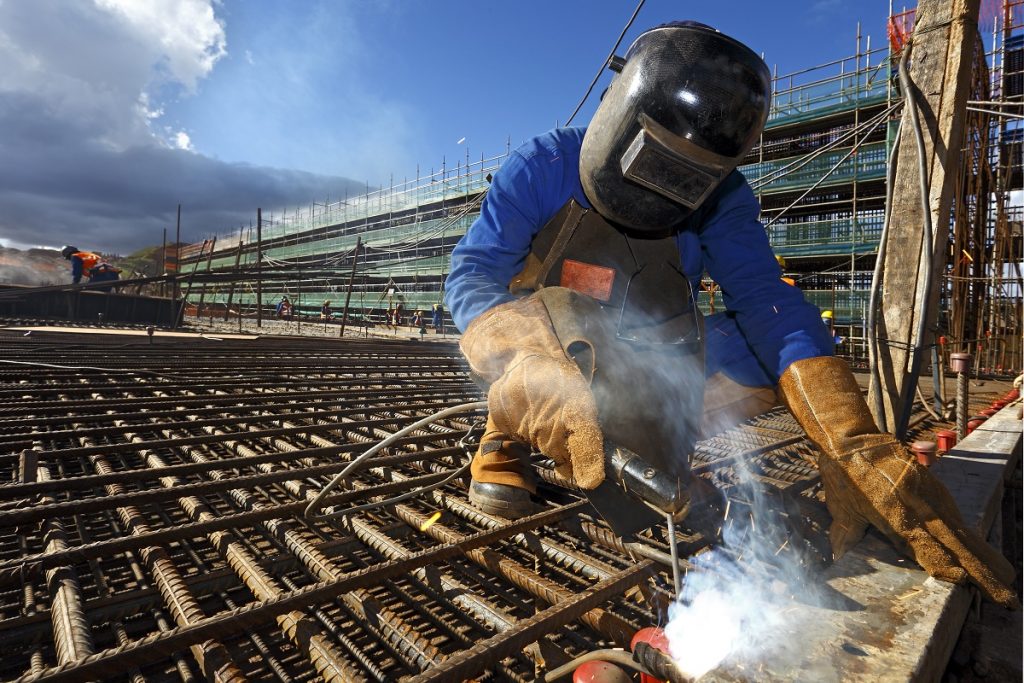- Skilled trades offer stable careers, but starting can be daunting; discover your passion through research and hands-on experience.
- Engaging with industry professionals can provide invaluable insights and potential mentorship opportunities.
- After identifying your interest, choose a trade—such as steel manufacturing, plumbing, or electrical work—that aligns with it.
- Obtain the necessary credentials through vocational schools or apprenticeships and launch your career in the skilled trade industry.
There is a growing demand for skilled workers in the trade industry, and now is the right time to consider starting a career in skilled trades. Skilled trades workers are responsible for the essential infrastructure and services that people depend on. They build and repair homes, offices, roads, bridges, and pipes.
If you are interested in a career that offers stability, growth, and lifelong learning opportunities, then the trade industry may be perfect for you. However, starting a career in the skilled trades can be intimidating, especially if you don’t know where to start. This blog post will provide a comprehensive guide to help you get started on your journey.
Discover Your Passion
Before embarking on a career in the skilled trade industry, you should first figure out what you are passionate about. Do you love working with your hands? Do you enjoy tinkering with machinery or building things from scratch? Figuring out what interests you is an excellent starting point in determining which trade to pursue. Here are some ways to help you determine your passion:
Research
One effective way to discover your potential passion in the skilled trades is through conducting research. Take some time to dive into the different trades available and understand what each one entails.
Look into various fields such as carpentry, plumbing, electricians, HVAC technicians, and others. The Internet, local libraries, or local trade schools can be excellent resources for this research.
Hands-on Experience
Another practical way to explore your interest in skilled trades is to get some hands-on experience. This could be through volunteer work, internships, or even just trying out some DIY projects at home.
You can also consider job-shadowing a professional in a field you’re interested in. This gives you a first-hand view of the day-to-day tasks involved in a particular trade. These opportunities not only provide a real-world perspective of the trade but also help you determine if you genuinely enjoy the work involved.
Talk to Professionals

Engaging with professionals already working in the trade industry can provide priceless insights into the reality of the job, the rewards, and the challenges. Participate in industry meetups, events, or forums, and don’t hesitate to ask questions.
You may even find a mentor who can guide you as you navigate your career path. Professionals who have walked the course you intend to walk can offer practical advice on how to kickstart your career and can also provide an insider’s perspective on what it’s like working in a particular trade.
Choose Your Profession
After discovering your passion, it’s time to select a trade. There are many different types of trades to choose from. Conduct research and read up on each trade to determine which one aligns best with your interests and career goals. Here are some examples:
Steel Manufacturing
Steel Manufacturing is a crucial element of the skilled trades industry, catering to a wide array of sectors such as construction, automobile, machinery, and appliances. It encompasses various roles, from operating equipment conducting quality tests, to overseeing the production process.
Given the vital role of steel in modern infrastructure, this trade often has good job openings. If you are detail-oriented and enjoy working with machinery, a career in steel manufacturing could be a rewarding option for you.
Plumbing
Plumbers are responsible for installing and maintaining piping systems, as well as providing emergency water supply services. If you have a knack for problem-solving and enjoy working with your hands, then plumbing could be the right trade for you.
Plumbers must possess excellent troubleshooting skills to identify, diagnose, and repair issues that arise during projects. They must also be knowledgeable about local regulations and safety standards.
Electrical Work

Electricians design, install, maintain, and repair electrical systems that power homes and businesses. They are responsible for ensuring all electricity is running safely and efficiently.
If you have an eye for detail and enjoy working with your hands, a career as an electrician could be the perfect fit. Electricians must possess excellent problem-solving skills and have an in-depth knowledge of safety regulations and standards.
Obtain the Right Credentials
Once you have decided on which trade to pursue, you must obtain the necessary credentials. Education and certification are critical in the skilled trade industry.
Look for vocational schools or trade schools in your area that offer programs for the trade you have chosen. You may also need to obtain a license or certification to practice your trade legally.
If possible, try to find an apprenticeship program that will give you the opportunity to learn on the job and get hands-on experience. Apprenticeships are an excellent way to gain valuable knowledge and practical skills in your trade.
The skilled trades position themselves as an excellent career choice. Starting a career in this field can be intimidating, but it doesn’t have to be. The process of creating a career in the skilled trade industry is all about discovering your passion, selecting a trade, obtaining credentials, gaining experience, and launching your career. By following the steps outlined in this blog post, you will be well on your way to a successful career in the trade industry.

